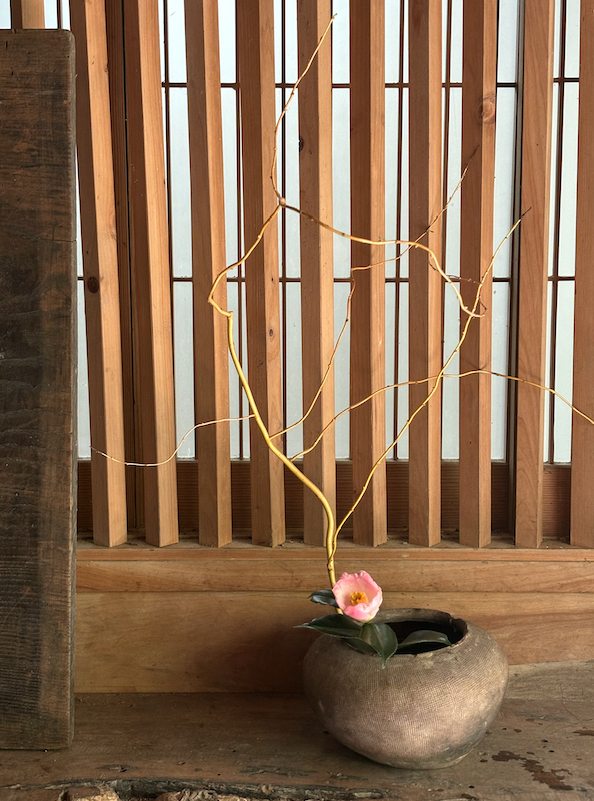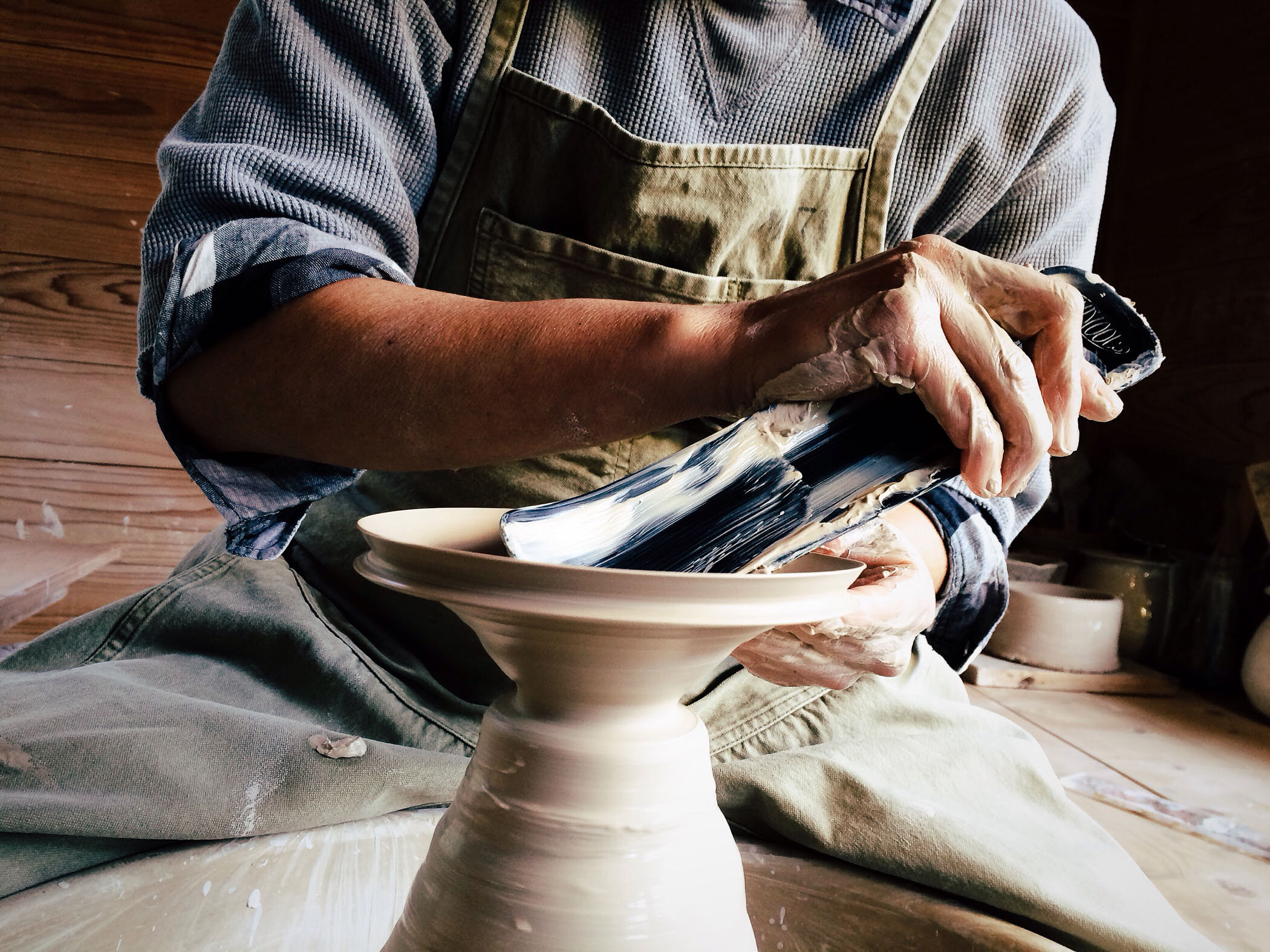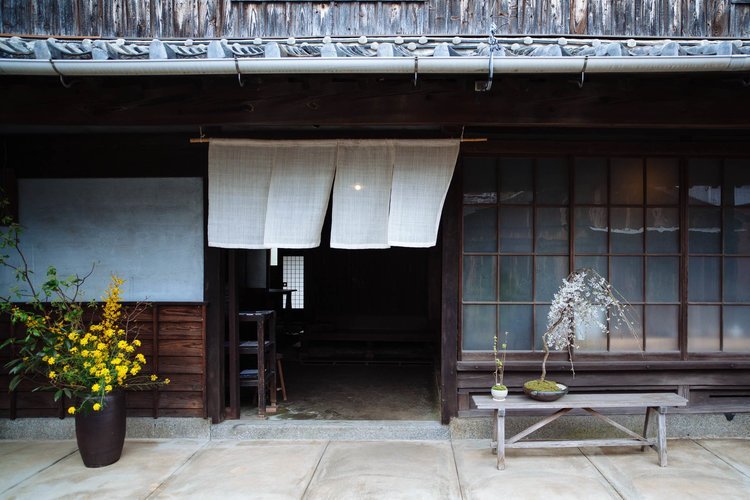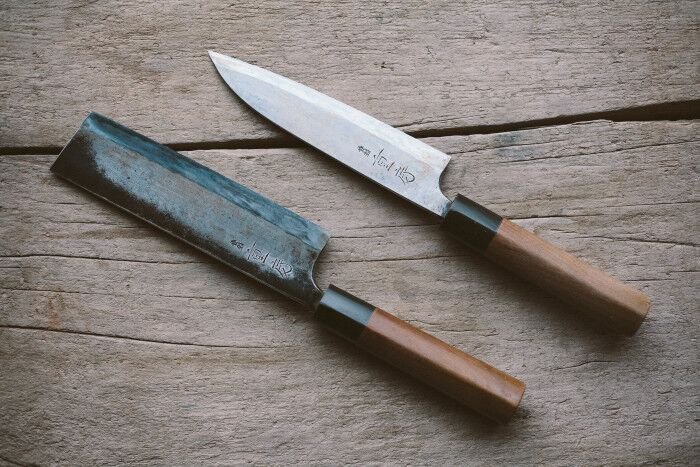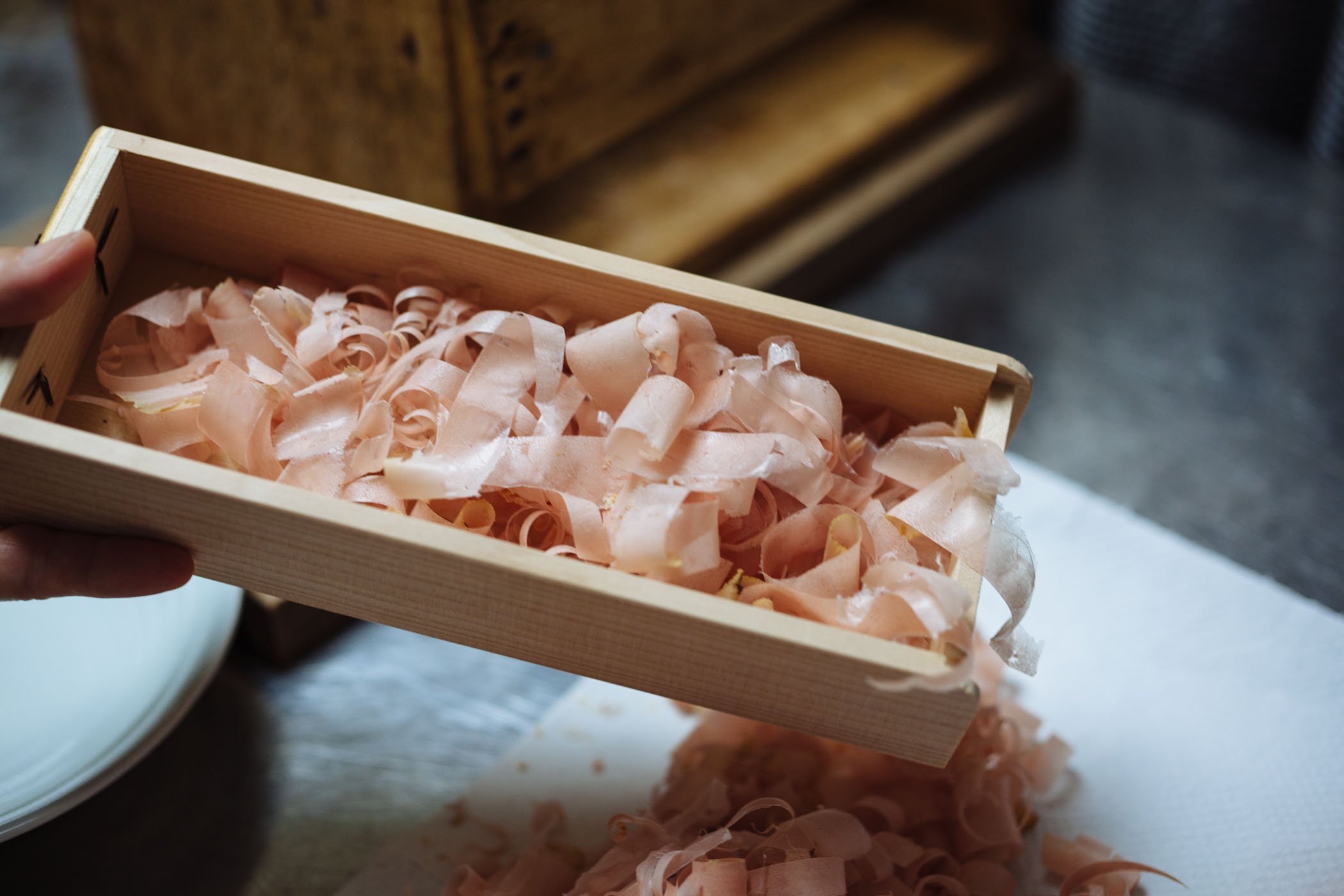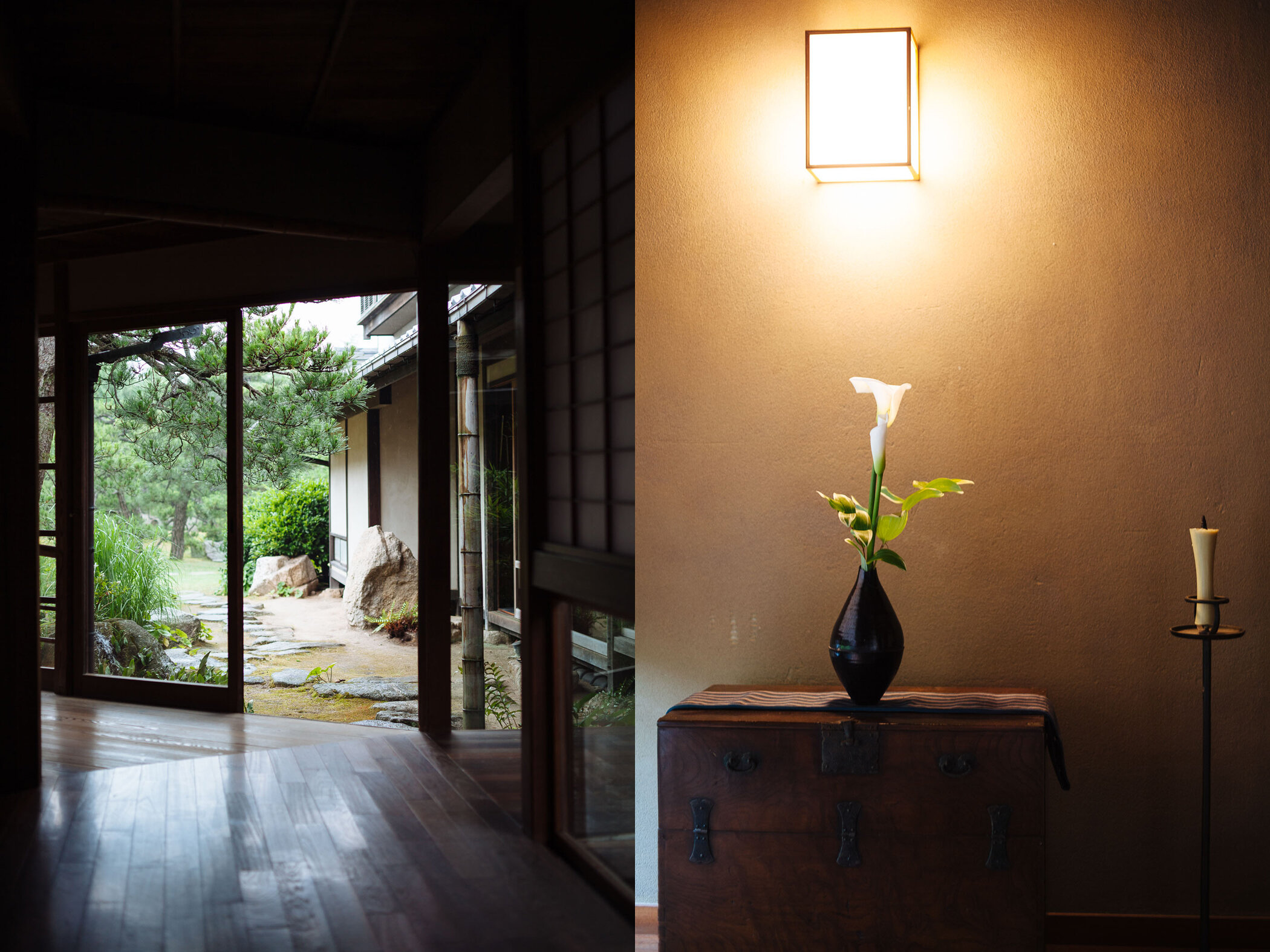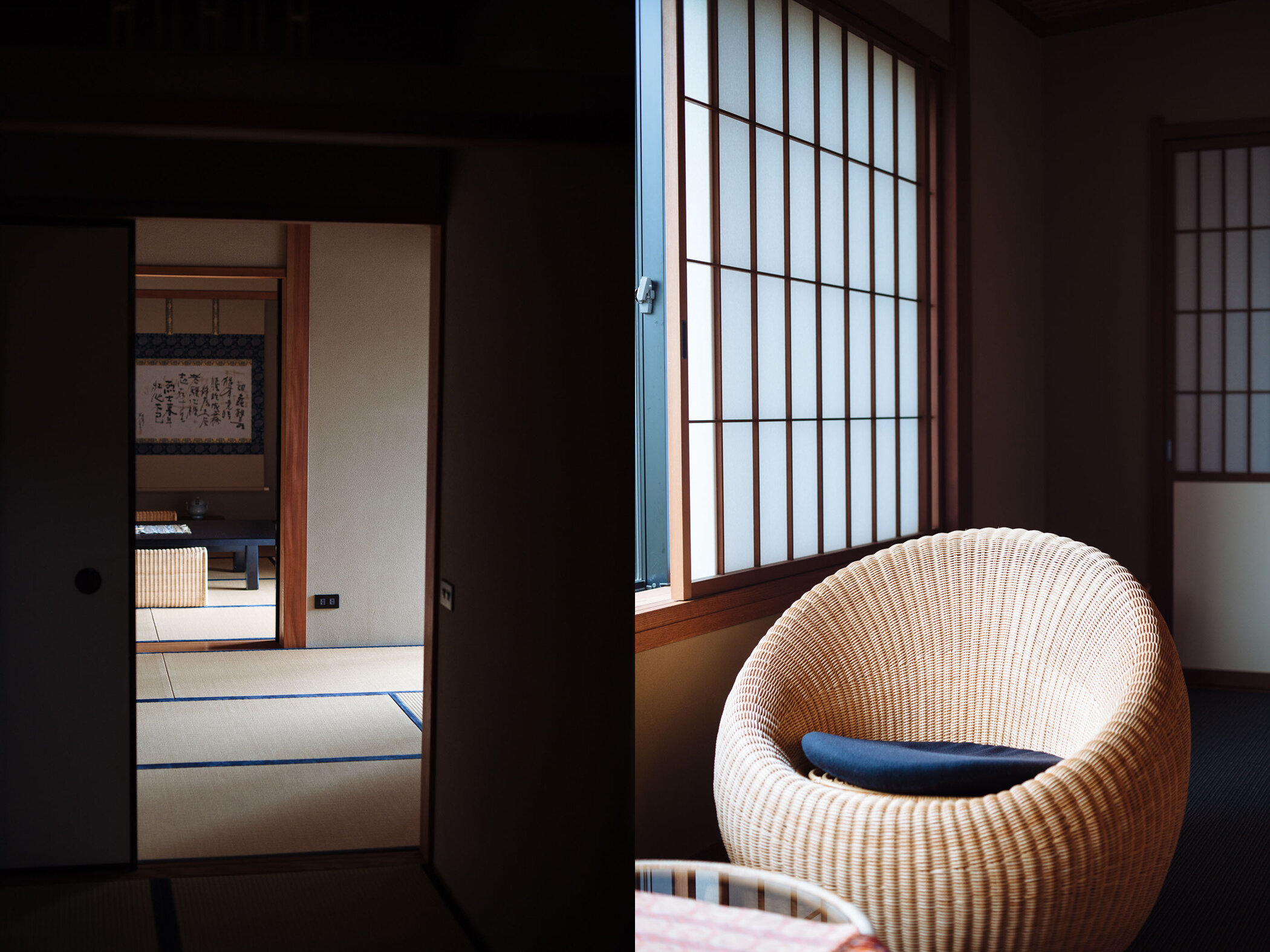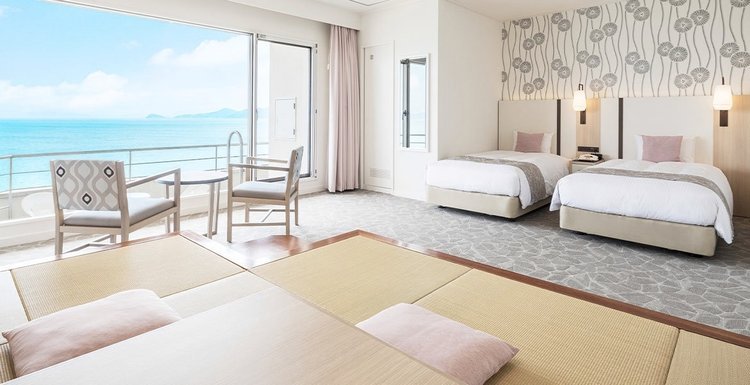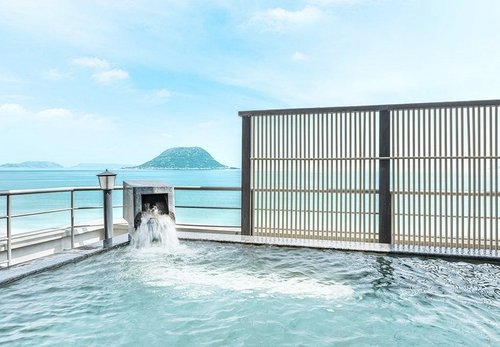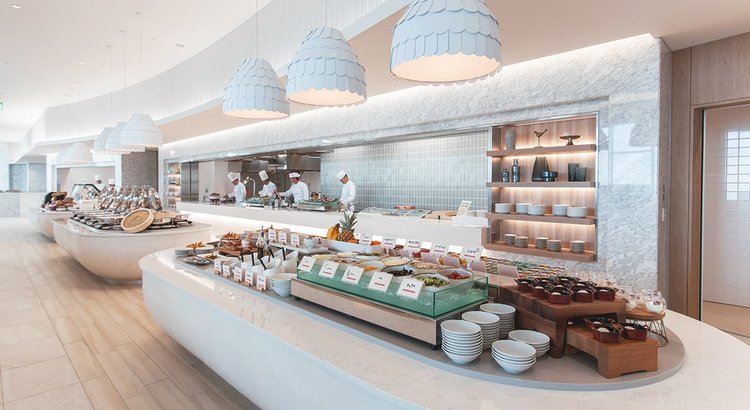KARATSU, JAPAN
The Story Of Tea + Ceramics with Local Makers In Southern Japan with Prairie Stuart-Wolff
May 16 - 23, 2024
All photos by Prairie Stuart-Wolff
Join us in the beautiful southern region of Japan, off-the-radar of the tourist masses, as we explore the intersections of food, tea, and ceramics. Karatsu pottery has long been collected by chefs and home cooks alike for use at the table as ell as by practitioners of tea ceremony. We’ll explore it’s use at the table by experiencing many different styles of meals plated on local pottery and about the origins and tastes of green tea itself through meeting a tea farmer on his estate.
This intimate behind-the-scenes experience will be curated and lead by Prairie Stuart-Wolff. Prairie is a writer and photographer, who will bring you on a journey of epicurean ideals from the heart of Japan.
May is a wonderful time of year to visit Karatsu. The days are mild and sunny and evenings slowly turn warm enough to leave the windows open. The first cicadas begin to stir and the lavender color of wild thistle blossoms in the fields marks the entrance into summer. It’s the season of fragrant citrus blossoms and fresh garden vegetables, and the tea harvests are underway.
Trip Itinerary, Details + Important Trip Notes below.
DATES
May 16 - 23, 2024 ∙ 8 Days, 7 Nights
PRICE
[SOLD OUT] Twin Shared Room
[SOLD OUT] Partial Private Room
[SOLD OUT] Private Room
Full Rooming + Pricing Details Below
This Ace Camp is currently SOLD OUT, we have a new trip to Karatsu Japan in November 2024 now open for booking via the link below:
TRIP HIGHLIGHTS INCLUDE
Guided workshops and tours by Prairie Stuart-Wolff
Pottery studio tours
Visit to the historic Porcelain town of Arita
Specially curated meals
Green Tea Tasting and educational class
Onigiri Workshop
Transport during tours and return train transfer from Fukuoka to Karatsu
Prairie Stuart-Wolff
Prairie is a writer, photographer, and the founder of Mirukashi Salon where she hosts guests for a multi-day immersive culinary experience in the heart Japan’s Kyushu countryside. Whether in person, or in words and images, Prairie’s mission is to celebrate Japan’s culinary culture and connect people to the natural environment from which its finest flavors originate. From her work with Kodaiji Wakuden, one of Kyoto’s most highly regarded traditional kaiseki restaurants, Prairie has become acquainted with the highly refined historical and contemporary expressions of taste and aesthetics in Kyoto. You can learn more about Prairie at mirukashi.life
Day by Day Itinerary
Day 1
Travel Day
Make your own way to our arrival hotel in Fukuoka, located a short walk from Hakata Train station.
The airport and train station (where the Shinkansen/bullet train stops) are easily accessed as they are just a few minutes away.
Due to many flight arrival times later in the day, there are no planned activities today. Take some time to settle in and relax this evening.
Day 2
This morning is free for you to explore Fukuoka, the hotel is within walking distance of the Shofukuji temple complex, completed in 1195 it is the oldest Zen temple in Japan.
Late morning, we will meet at the hotel and enjoy a casual meet and greet lunch of the local specialty Tonkotsu ramen. After lunch we will take the train 2 hours south to Karatsu.
Dinner this evening at Tamatori. A female forward establishment that features Hanako Nakazato’s pottery.
Day 3
We start this morning with a private, hands-on cooking class at a beautiful farmhouse home with a local chef. You will learn basic Japanese kitchen techniques which include the proper way of cooking rice and making dashi and hand made onigiris. Our lunch will consist of the dishes we prepare this morning.
This afternoon we visit Hanako Nakazato’s personal studio and workshop also known as monohanako. Established in 2007, Hanako apprenticed under her father at Ryutagama. Here we will see an example of a production studio. Each piece is wheel thrown by hand and Hanako will demonstrate her throwing technique, throwing off the hump with a gyubera (bull’s tongue tool). She’ll explain the technique’s efficiency and history particular to Karatsu.
This evening we enjoy dinner at Hirata where Tomohaya Hirata, a Kyoto kaiseki trained chef, assisted by his wife Rika, serves a course menu of elegant dishes made with fresh, seasonal ingredients in local ceramics.
Day 4
Today we venture to the Ukiha region of Khyshu. Ukiha is known as a remarkably progressive and creative community where you will find resident creators and food producers in all fields from woodworking to fruit + tea farming.
Our morning takes us to a collective site of artisans and makers. You’ll learn about kimono fabric and fabrication with Hiroshi Tanaka and enjoy a creative lunch at TanenoTonari.
This afternoon we will a 1200 year old family Tea Estate. We will learn about the land, the historical house and the family history of the property.
Casual Izakaya dinner with the group at one of our favorite spots in Karatsu
Day 5
This morning we visit the home, garden and studio of local potter Masahito Minamimori. Minamimori-san did not follow a traditional path into the world of Karatsu ware. He became fascinated by it later in life, retired from his job and built himself a kiln and pottery studio. His work is rustic, simple and beautiful. His curiosity provides the motivation for his pottery. Minamimori-san also takes great pride in his gardens and grows flowers for local ikebana artisans.
For lunch we’ll visit ‘Karatsu Burger’. Nestled inside a pine forest, the Karatsu burger is consistently rated as one of the best in Japan. This magnificent forest of black pines dates from the 17th Century, when the first lord of the Karatsu domain, Terazawa Hirotaka, planted black pines along the dunes as protection against wind and tides.
We’ll wander through the pine forest back to your hotel and you’ll have the rest of the day free to relax and explore Karatsu on your own.
Day 6
This morning we check out of Seaside Hotel and check into Yoyokaku.
Our journey today takes us to the small historic town of Arita, to see a very different kind of pottery - mold made porcelain tableware. With the discovery of Kaolin clay in 1615 the first Japanese porcelain, Aritayaki, originated in the town of Arita, and enabled the manufacture of fine porcelain in Japan for the first time.
We will also visit the studio of local artist Sadamu who has found a contemporary approach to vessels. As well as wander the village of Okawachiyama in Imari which will showcase a variation on traditional porcelain ware.
Dinner this evening will be ShabuShabu at Yoyokaku
Day 7
This morning we visit a historical local property. The Former Takatori Residence is a Japanese-style wooden structure constructed along the west shore of Karatsu Castle by Takatori Koreyoshi in 1905. It’s a fascinating architectural mix of modern Japanese architecture including Western-style rooms based upon the Japanese style, as well as a Noh stage built in the grand hall, and has unique internal designs, "Sugito" cedar doors, and "Ranma" transoms.
Lunch at Karae Cafe
This afternoon we will visit with another local ceramic artisan who will share their process and work within the community.
Dinner this evening will take place at Arutokoro where we will also enjoy a traditional washoku course meal. Arutokoro is located in a farmhouse at the foot of mount Kagami that has been renovated with care. Kaiseki trained chef Hirakawa serves a course menu of traditional Japanese food using local, seasonal ingredients. Meals are prepared in an open kitchen visible from the the dining table using techniques such as grilling on binchotan white charcoal and cooking rice in an iron pot over an open flame.
Day 8
Departure Day
This morning we pack our bags, say our farewells and take the train back to Hakata Station in Fukuoka for departure. Thank you for joining us on this incredible and often unexpected journey to the heart of Karatsu.
さようなら !
Where We’re Staying
YOYOKAKU
Located in a delightful corner of Karatsu, between the estuary and the beach, Yoyokaku is a small, charming ryokan - a traditional Japanese inn - with a history stretching back over a hundred years. Yoyokaku features superb food, beautiful ikebana, Japanese baths, a traditional garden, and warm hospitality.
An important note about the beds at Yoyokaku
Here you will sleep on traditional Japanese floor futons in tatami mat rooms (not a western style mattress). All rooms feature elegant, traditional Japanese design and décor, a garden view and ensuite bathroom.
KARATSU SEASIDE HOTEL - WEST WING
This comfortable oceanside western style Japanese hotel features spectacular sea views from every room. The hotel is located at the foot of the spectacular Saga Pine Forest, also known as Nijinomatsubara. This magnificent forest of black pines dates from the 17th Century, when the first lord of the Karatsu domain, Terazawa Hirotaka, planted black pines along the dunes as protection against wind and tides.
ROOMING OPTIONS
There are THREE different styles of rooming on this trip.
Please read the room options and notes below carefully and make your rooming selection on the booking page
Group Size: Maximum 11 guests All Prices are in USD.
This Ace Camp is currently SOLD OUT, we have a new trip to Karatsu Japan in November 2024 now open for booking via the link below:
Important Trip Notes + Details
CULINARY NOTES + RESTRICTIONS
Unfortunately we are unable to handle specific dietary requirements, allergies or intolerances on this trip.
As a culinary focused tour, the meals are a main aspect of the week and the more adventurous you are, the tastier this trip will be for you. Seafood dishes will feature prominently during this Ace Camp and we recommend you enjoy all kinds of fish + seafood in particular. While we won’t be challenging you with the strangest aspects of the food culture, even day-to-day eating in Japan can taste quite different to someone unfamiliar with the cuisine.
WHO IS THIS TRIP FOR?
This is an immersive adventure and best suited for those who enjoy traveling as a part of a group.
This trip is for the calm, open minded traveler who is eager to experiment with their taste buds. You should be interested in learning about the local community of artisans, fascinated by ancient rituals and curious about regional culture and cuisine.
THIS ACE CAMP INCLUDES
Seven (7) nights accommodations in Fukuoka + Karatsu as follows: 1 night in Fukuoka hotel, 4 nights in Karatsu Seaside hotel, 2 nights in a traditional Ryokan Yoyokaku; exclusive culinary + cultural experiences guided by Prairie Stuart-Wolff; seven breakfasts, six lunches and five dinners, return train transport between Fukuoka and Karatsu.
WHAT’S NOT INCLUDED
International roundtrip airfare; Personal Travel Insurance: We require all participants to have personal travel insurance that at minimum covers medical emergencies and cancellations; Alcoholic Drinks; activities not included in the trip itinerary; hotel incidentals including room service, expenses during free time; laundry service and hotel bar tabs; food and beverages not included in itinerary.
WEATHER
May is a wonderful time of year to visit Southern Japan. Days are mostly temperate with trees and plants in bloom.
Temperatures range from 55°F to 75°F, which means you should pack layered clothes for your stay and a light jacket + umbrella to prepare for the odd shower.
TRAVEL ARRANGEMENTS
Ace Camps will email you when it is time to make your travel arrangements. This email will be sent 60 days or more before your trip departs unless you book within 60 prior to the camp.
We will also be sending you an Ace Camps Travel preparation document prior to your trip. It will include a detailed itinerary, arrival and departure information, a suggested packing list, useful country information and more.
COVID DISCLAIMER
While we strive to deliver all aspects of the included itinerary and specific accommodation, due to challenges some vendors may be facing, certain aspects of your Ace Camp may be changed according to the situation beyond our control. In the small chance this does occur, we will work to offer comparable accommodations and/or activities when possible. Thank you for your understanding.
Ace Camps Inc. will not be responsible for refunding any lost trip funds if you have to miss your scheduled trip as you cannot meet the requirements determined by Ace Camps Inc. and the country you are visiting.
Please read our full COVID-19 Policies + FAQ’s HERE
ACCESSIBILITY
Please note this Ace Camp includes several walking tours, you may be on your feet for a couple of hours at a time. We ask you are comfortable walking or standing for long periods.
You should also be comfortable being seated on the ground during certain meals and workshops.
Our ryokan has several sets of stairs to reach rooms.
WHERE DOES THIS TRIP START + FINISH?
This trip starts and ends in Fukuoka, Japan.
There are several ways to arrive in Fukuoka. Via plane, train or bus from other areas in Japan such as Tokyo or Kyoto. Our arrival point hotel is conveniently located a few minutes walk from Hakata Train Station in Fukuoka.
ACE CAMPS TOUR MANAGER
An Ace Camps Tour Manager is a part of your group and is there to look out for your safety, to help resolve issues, and to make sure you get what you want from your trip. Your Tour Manager is not a local guide but will work with all local vendors and partners to insure the right combination of pace, information, and duration.
BOOKING TERMS + CANCELLATION POLICY
All payments made towards this trip are non-refundable and non-transferable - please ensure you can make it before registering.
Please ensure you read through our full Booking Terms + Cancellation Policy.om the above, and are non-refundable.
QUESTIONS + FAQ’S
If you have any further questions about this Ace Camp please feel free to contact us.
You can also read more FAQ’s here.
Nota Bene: this is a prospective itinerary. It is subject to modest modifications, dependent on local weather, new opportunities and the desires of the group.








